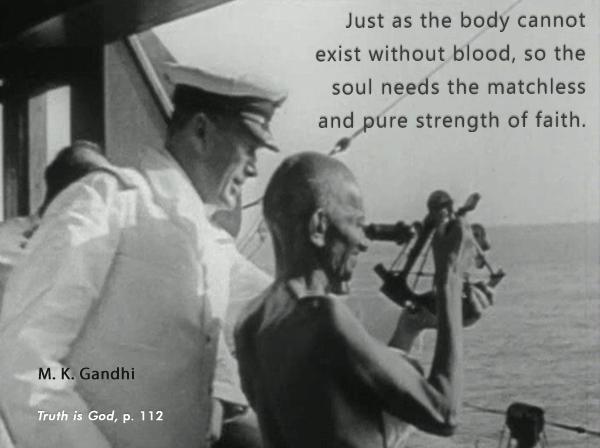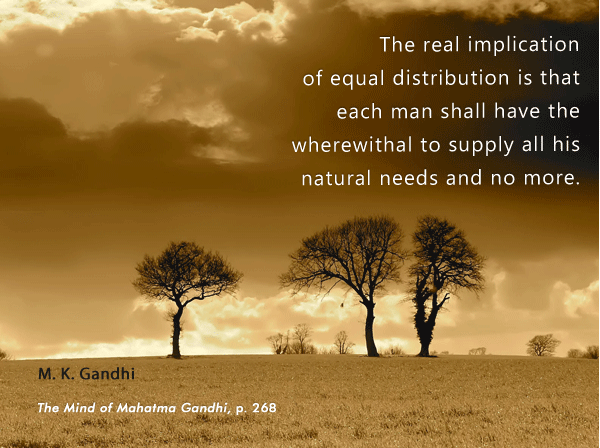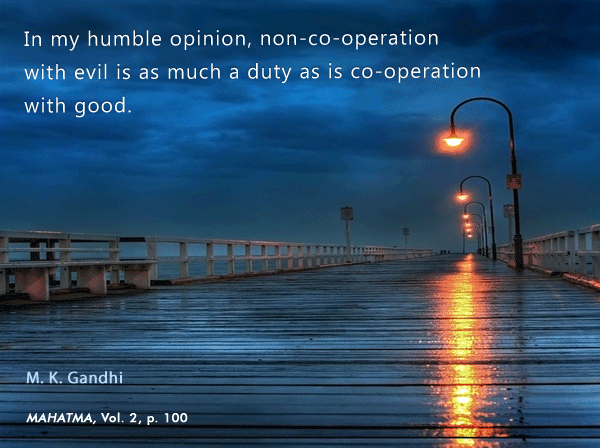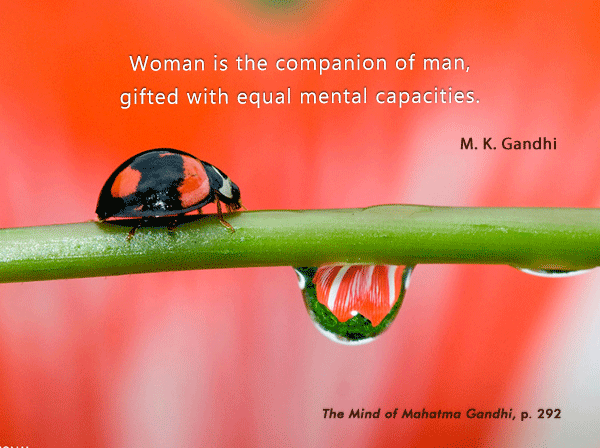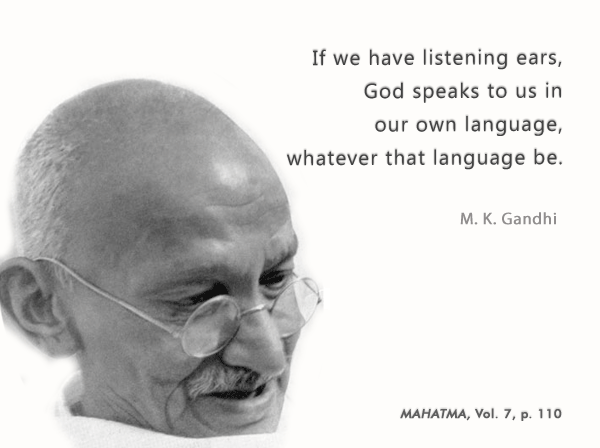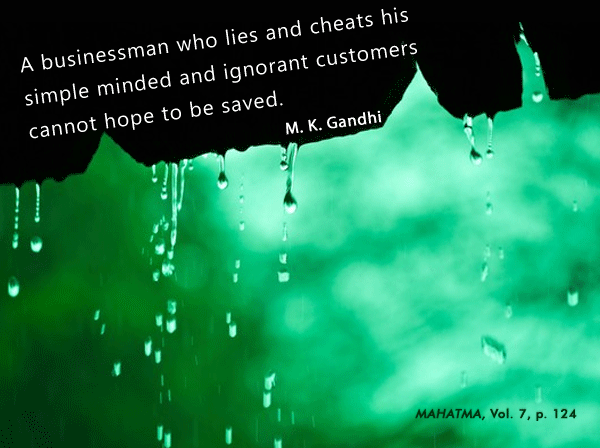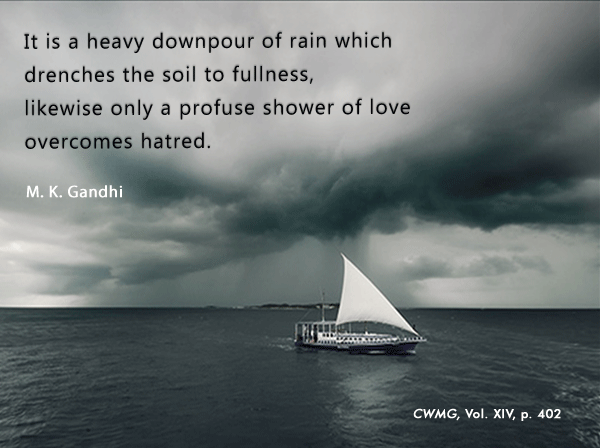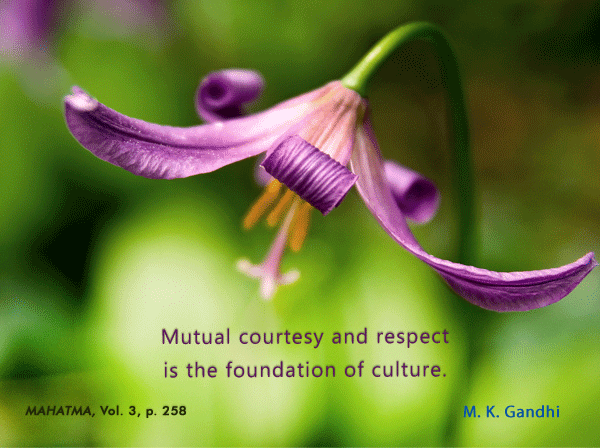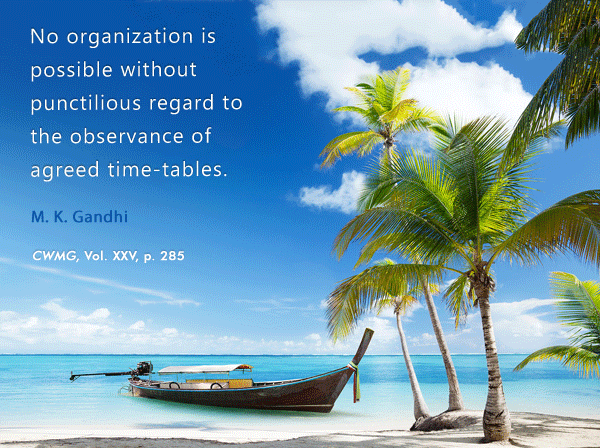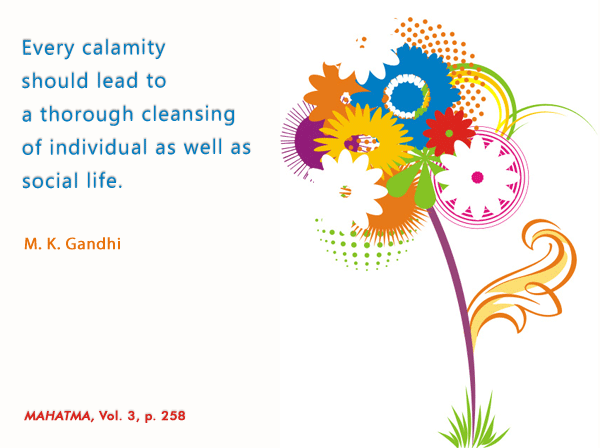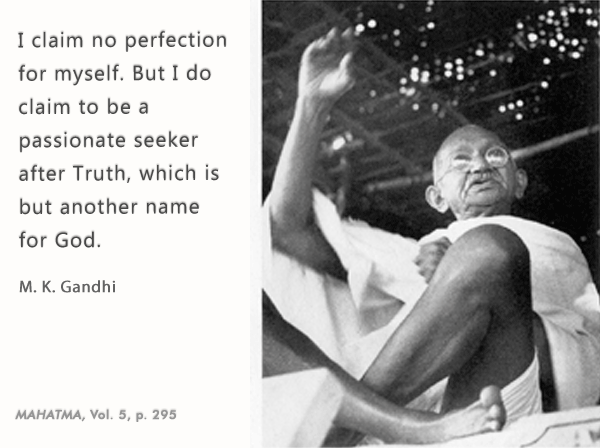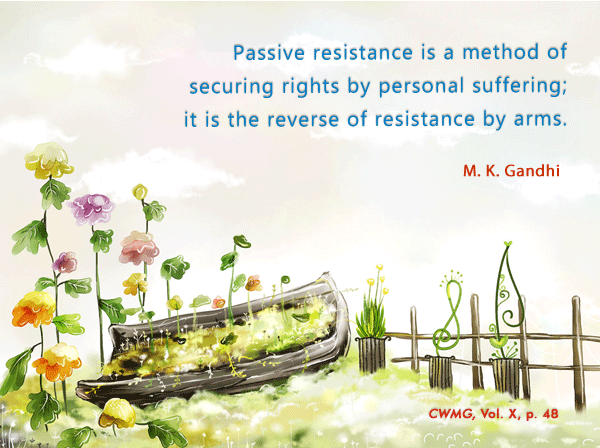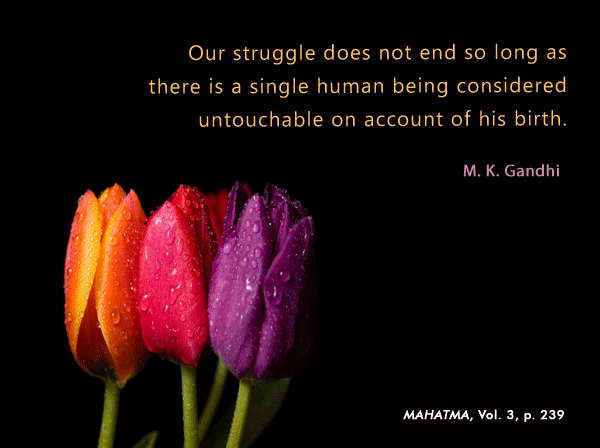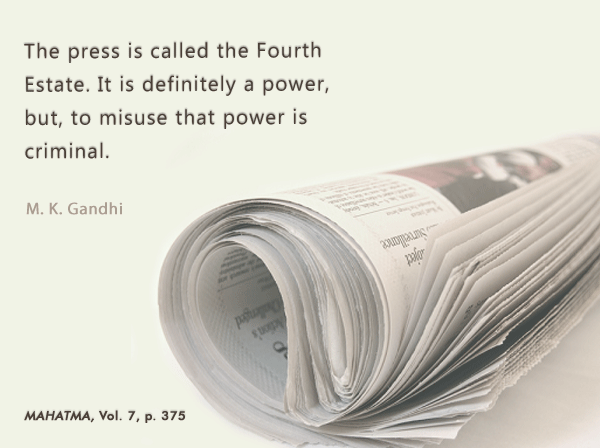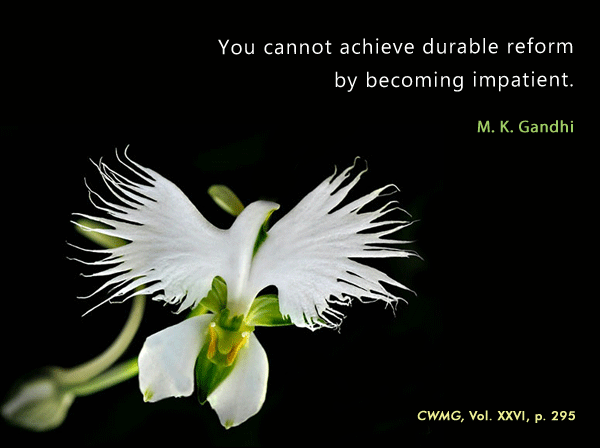Tuesday, June 30, 2015
Monday, June 29, 2015
Sunday, June 28, 2015
Saturday, June 27, 2015
Friday, June 26, 2015
Thursday, June 25, 2015
Wednesday, June 24, 2015
Tuesday, June 23, 2015
Monday, June 22, 2015
Sunday, June 21, 2015
Saturday, June 20, 2015
Vinobaji's views on 'Non-violence training'
Vinobaji's views on 'Non-violence training'
Questions & answers between Shri Ramchandraji, Gandhi Smarak Nidhi and Vinobaji, March 1971, Brahma Vidya Mandir
Question: We are in the process of starting a school of Non-violence. What would be an appropriate goal for this school that will galvanize the youth and workers like the goal of independence did during our freedom struggle?
Answer: There is no doubt that the freedom struggle inspired a lot of educated persons in which we, who are now aged, participated. Thinking back, we now realize that even though there was great enthusiasm, it was negative thinking. There were no positive expectations in wanting the English to leave, though Gandhiji tried to introduce constructive activities in his struggle for independence. But the people did not fully implement his programs of non-violence and constructive work in accordance with his wishes and hence the struggle cannot be called totally non-violent.
Friday, June 19, 2015
Thursday, June 18, 2015
Wednesday, June 17, 2015
Tuesday, June 16, 2015
Gandhi Journal Article-III : In the Field and in the Academy: An Outsider's Observations
Gandhi Journal Article-III : In the Field and in the Academy: An Outsider's Observations
By Thomas Weber
This is based on the Fourth Annual Gandhi Lecture delivered at the Vardhaman Mahaveer Open University in Kota, on 21 July 2012.
I FIRST WENT TO India in 1975 as a young person with a strong interest in the country and its most famous son. I returned in 1979 specifically to find Gandhi and have been back on Gandhi quests about a dozen times since. I have now spent something over three years of my life there, much of it at Gandhi ashrams or in the Gandhi archives of various libraries, or talking to old Gandhians, many of whom I had the privilege of calling friend before they passed away. Hopefully this gives me some small claim to make comments on the status of what may be termed “Gandhism” in India. And, as an outsider, I have no political axes to grind or profit to make from taking any particular stand.
I FIRST WENT TO India in 1975 as a young person with a strong interest in the country and its most famous son. I returned in 1979 specifically to find Gandhi and have been back on Gandhi quests about a dozen times since. I have now spent something over three years of my life there, much of it at Gandhi ashrams or in the Gandhi archives of various libraries, or talking to old Gandhians, many of whom I had the privilege of calling friend before they passed away. Hopefully this gives me some small claim to make comments on the status of what may be termed “Gandhism” in India. And, as an outsider, I have no political axes to grind or profit to make from taking any particular stand.
Monday, June 15, 2015
Saturday, June 13, 2015
Friday, June 12, 2015
Gandhi Journal Article-II : Tolstoy and Practical Spirituality
Gandhi Journal Article-II : Tolstoy and Practical Spirituality
By Christian Bartlof

This brief article provides an account of the spiritual transformation of Leo Tolstoy from a frustrated Count on the verge of committing suicide to an antiwar activist. His support for the Doukhobors, assistance to them to migrate to Canada and the idea of non-violent non-cooperation mark him out as a person who drew from spirituality to shape his profile as a peace activists.
Thursday, June 11, 2015
Wednesday, June 10, 2015
Tuesday, June 9, 2015
Monday, June 8, 2015
Gandhi Journal Article-I : Economic ideas of Mahatma Gandhi - Issues & Challenges
Economic ideas of Mahatma Gandhi - Issues & Challenges
By Dr. Suresh Maind
Abstract
Mahatma Gandhi had a multifaceted personality. His aim in life was to achieve enlightenment by serving his nation and mankind. He was born in India and so he was of the opinion that it was his first duty to serve India. He did it through his thoughts, creative activities, different movements, organisations, and his own lifestyle. His creative activities can be classified in 18 forms which cover mainly political, economic, social, educational, religious as well as medical fields. Many forms of his activities were related to economic wellbeing of society. He was clear that economic self-sufficiency for an individual and for a nation is unavoidable. This led him to think about and study various economic problems of the country and devise action plans for solving them. This was the root of his economic thinking. His work, discussions or writings therefore, were not educational fancy but were the need of the hour. He knew that the major part of human life is busy in economic activities. In that case economic activities can never be without ethics and non-violence.
Gandhi's economic ideals, much like everything else in his life, were governed by ethical and moral considerations. His stress on rural economy and emphasis on a simple life, coupled with his concern for universal well-being formed the foundation of his unique views on economics. Gandhi's economic models were based largely on his understanding of the Indian situation. However, it should be stressed that Gandhi himself believed that the model could be employed on an international scale as well. It should be remembered that Gandhi's economic modes are particularly humanitarian in nature and for him no economic model is worth implementation unless it aims towards the general well-being of mankind.
Gandhi's economic ideals, much like everything else in his life, were governed by ethical and moral considerations. His stress on rural economy and emphasis on a simple life, coupled with his concern for universal well-being formed the foundation of his unique views on economics. Gandhi's economic models were based largely on his understanding of the Indian situation. However, it should be stressed that Gandhi himself believed that the model could be employed on an international scale as well. It should be remembered that Gandhi's economic modes are particularly humanitarian in nature and for him no economic model is worth implementation unless it aims towards the general well-being of mankind.
Saturday, June 6, 2015
Friday, June 5, 2015
Thursday, June 4, 2015
Wednesday, June 3, 2015
Tuesday, June 2, 2015
Subscribe to:
Posts (Atom)

